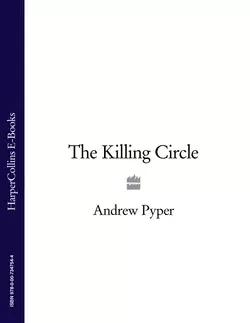The Killing Circle

Andrew Pyper
Тип: электронная книга
Жанр: Современная зарубежная литература
Язык: на английском языке
Стоимость: 152.29 ₽
Статус: В продаже
Издательство: HarperCollins
Дата публикации: 16.04.2024
Отзывы: Пока нет Добавить отзыв
О книге: A spine-chilling, mind-twisting new psychological thriller in which a writing circle is haunted by a serial killer, from the acclaimed author of Lost Girls.Some People Will Do Anything For A Good StoryNothing seems to be going right for journalist Patrick Rush. Recently widowed, he′s now bringing up a young son by himself. At work, he finds himself demoted to anonymous TV critic. It′s time to do something.So he joins a creative writing circle in hope of realizing a life-long dream – to write a novel of his own. But this circle is somewhat … unorthodox. The sessions are conducted in darkness, lit only by candles. Their shadowy leader has only recently come out of exile. And to make matters creepier, a gruesome serial killer is prowling the streets of Toronto – with an M.O. which bears more than a passing similarity to one circle member′s tale about a child-snatcher called The Sandman.But how could one sinister story have an effect on the real world? Could there be a connection, and if so, who′s involved? As the line between fact and fiction becomes increasingly hazy, Patrick decides to cut all contact with the circle – until he finds that once you′re in this book group, there′s only one way out…